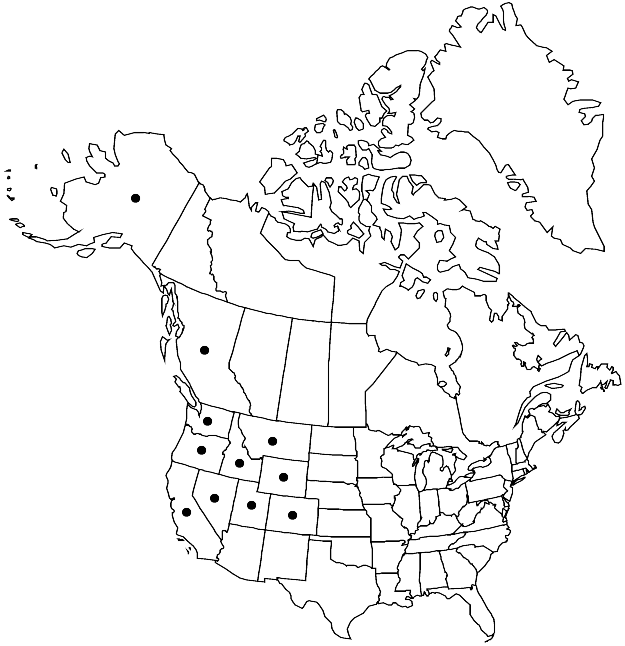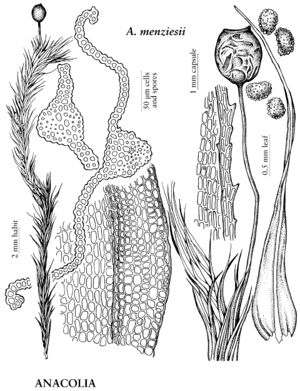Anacolia menziesii
Actes Soc. Linn. Bordeaux, sér. 5, 6: 37. 1894.
Plants yellowish green to reddish-brown. Stems 3–5 cm. Leaves erect, imbricate when dry, spreading when moist, narrowly lanceolate, distal lamina 1 (or 2) -stratose at margins, 2.5–4.5 mm; margins singly or doubly serrate distally; costa percurrent or short-excurrent, abaxial surface smooth; inner basal laminal cells quadrate or short-rectangular; distal cells rectangular to oblong, 25 × 4–10 µm, smooth or few cells bearing low prorulae on abaxial side. Seta 0.5–1.2 cm. Capsule 2–2.8 mm; operculum conic-obtuse; peristome usually absent, when present variously developed, usually broken, sometimes as low thin membrane below mouth. Spores 18–32 µm.
Phenology: Capsules mature Feb–Aug.
Habitat: Rock, ledges, ravines, shady canyons, soil
Elevation: moderate to high elevations (500- 2200 m)
Distribution

B.C., Alaska, Calif., Colo., Idaho, Mont., Nev., Oreg., Utah, Wash., Wyo., Mexico (Baja California)
Discussion
Features that aid in distinguishing Anacolia menziesii from A. laevisphaera include the less prorulose laminal cells and lack of sharp distinction between medial and marginal basal laminal cells. The capsule is fragile, often split; exothecial cells are quadrate and intensely pigmented below mouth. Variety baueri is moderately distinct from var. menziesii by virtue of more elongate capsules but is not recognized here.
Selected References
None.
